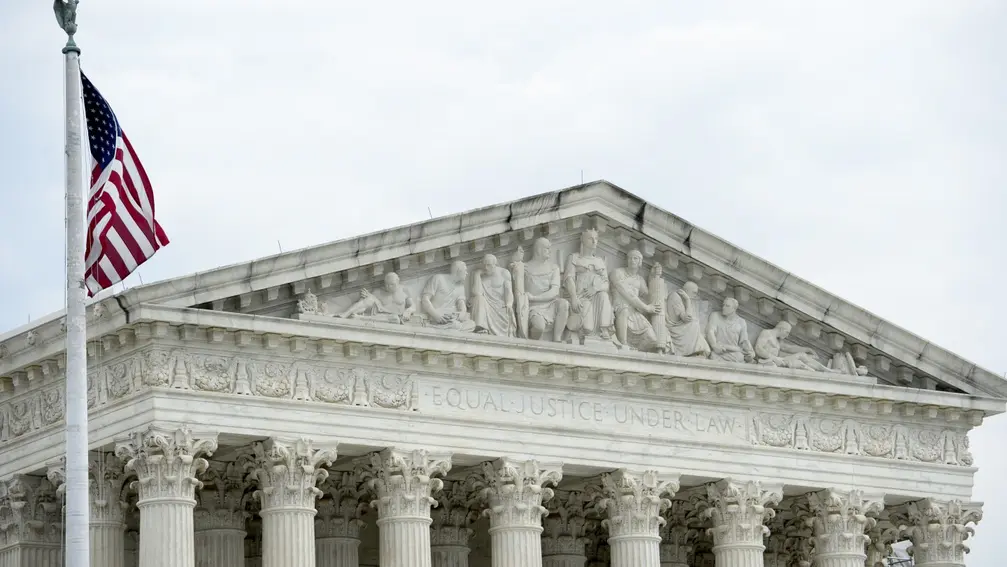T4K3.news
Appeals court overturns contempt finding in Venezuelan removals case
A divided DC Circuit reverses a district judge's contempt ruling in a case tied to Venezuelan migrants sent to El Salvador, highlighting ongoing executive-judicial tensions.

A divided appeals court vacated a district judge's contempt finding in a dispute over Venezuelan migrants sent to El Salvador.
Appeals court clears contempt finding in Venezuelan removals case
Washington, DC The U.S. Court of Appeals for the DC Circuit on Friday granted the Justice Department’s request to set aside Judge James Boasberg’s ruling that some federal officials likely committed criminal contempt for moving Venezuelan migrants to El Salvador. In a 2-1 decision, Judges Gregory Katsas and Neomi Rao overturned Boasberg’s contempt order, arguing he exceeded his authority. Judge Cornelia Pillard dissented.
Boasberg had blocked removals under the Alien Enemies Act and said officials showed a willful disregard for his injunctions. The court noted that the planes carrying migrants were already outside U.S. airspace when the injunction was issued, limiting the court’s ability to apply criminal sanctions. Many migrants were subsequently transferred to El Salvador’s high security facility known as the Terrorism Confinement Center, or CECOT, in a rapid sequence of events tied to a controversial policy move.
The ruling frames the dispute as a sharp clash between the executive and judiciary over immigration policy and foreign affairs. It leaves unresolved questions about how far judges can enforce administrative actions when the government argues that urgent policy measures are at stake.
Key Takeaways
"willful disregard"
Boasberg described the conduct as showing willful disregard for his injunction
"Our system of courts cannot long endure if disappointed litigants defy court orders with impunity"
Pillard's critique of willful disobedience and accountability
"In circumstances much less fraught than these, courts have reviewed interlocutory orders through mandamus to prevent extended inter-branch conflict"
Katsas on the broader capability of courts to intervene
"the government is plainly correct about the merits of the criminal contempt"
Katsas on the merits of the contempt claim
The decision highlights a precarious balance between enforcing court orders and allowing executive actions in a volatile policy area. It suggests that courts may be reluctant to impose criminal penalties when, in the view of some judges, the executive acts quickly in response to national security concerns. At the same time, the dissent emphasizes accountability and the danger of letting officials flout injunctions with impunity. The case underscores how immigration enforcement can become a hotbed for constitutional friction, with long-term implications for how the courts police presidential proclamations and rapid removals abroad.
Highlights
- Judicial power shrinks when politics invade the courtroom
- This is an extraordinary, ongoing confrontation between branches
- When it appears that a judicial order has been disobeyed, the court's ability to learn who was responsible is the first step to accountability
- Willful disobedience of a court order is punishable as criminal contempt
Political sensitivity and legal clash over immigration policies
The case sits at the intersection of immigration enforcement and constitutional checks on executive power, raising concerns about future criminal contempt rulings and the influence of politics on judicial decisions.
The intersection of law and policy stays at the center of heated immigration debates.
Enjoyed this? Let your friends know!
Related News

Appeals court blocks contempt case over deportations

Federal appeals court halts contempt ruling

Judge pauses Kilmar Abrego Garcia’s release from custody

Supreme Court rules against car finance motorists

Trump reshapes government using emergency appeals

Pedro Hernandez receives new trial in Etan Patz case

Palace challenges CAS ruling on demotion

Suspicions rise in mushroom murder case
